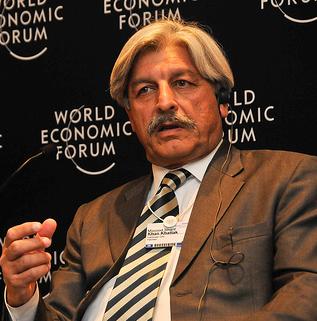

Over the past fortnight another wave of terrorism shook the country. Two huge blasts in Peshawar shook the provincial capital and the country as a whole. The federal capital witnessed a UN office being penetrated by a suicide bomber that made mockery of the bunker-mentality security doctrine. As if this was not enough to rattle the country the Pakistan army’s nerve centre, i.e. General Headquarters (GHQ) in Rawalpindi, was brazenly assaulted on October 10. Last, but not least, the Shangla blast in Swat of Oct 12 transported Swatis back into the era of the yester-months.
Lots of people refer to the situation in NWFP as an insurgency. I would have called it an insurgency if there was a widespread desire amongst the Pakhtuns to separate from Pakistan and support those fighting the state. To the contrary the Pakhtuns have proven their immeasurable sense of patriotism by facilitating the army in NWFP to re-establish the eroded writ of Pakistan.
It must be said emphatically that, over the past eight years, the Pakhtuns have suffered so much that it will be in the best interest of Pakistan to bring normality to NWFP before the militants can develop a leadership that can stoke the fires that are always lit by a sense of neglect and are fueled by endless sufferings, deprivation, awful living conditions and unemployment. At the moment the militants perpetrating cruel violence in NWFP are devoid of any support, whatsoever, from the Pakhtuns but if Pakistan does not awaken to the severity of the situation and to the miseries of the common Pakhtun the present militancy can spiral out of hand and take a more alarming proportion.
On the political front the Kerry-Lugar bill created a huge divide between Pakistan’s power bases. The military hierarchy, after a formal corps commander’s conference, conveyed serious reservations on certain clauses of the bill. These reservations aired by the military leadership had already been voiced vociferously by the intelligentsia, the general public and the media, and were, therefore, received with resounding public support.
In the current situation the Pakistan army is the last bastion for Pakistan. The political establishment can only work towards putting Pakistan back on the path to recovery from all the injuries that it has suffered in the past few years if the army can create the circumstances that are conducive to bringing about a national recovery. Thus, these two power bases must work in unison and be complementary to each other. The police and the civil armed forces have already been rendered, more or less, ineffective and it is clear that they cannot now function without the military cover. Such is now the importance of the army and the country’s intelligence establishments to its survival. Therefore, it can be said that any effort aimed at neutralising or weakening these two establishments would be an effort aimed at crippling Pakistan.
The army needs to guard against getting over-stretched in large-scale conventional military operations against terrorists and should develop small units of well-trained helicopter-borne troops who should react to real-time intelligence. Pakistan has to stand up on its own two feet.

Wonderful blog! I actually love how it’s easy on my eyes and also the data are well written. I am wondering how I may be notified whenever a new post has been made. I have subscribed to your rss feed which should do the trick! Have a nice day!